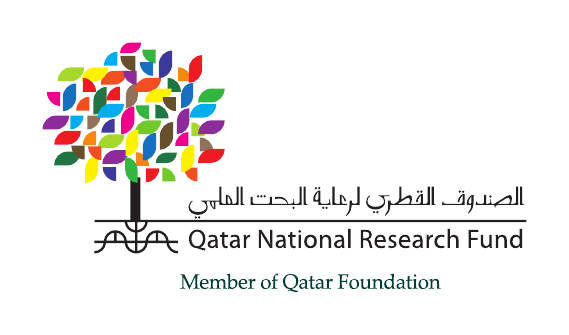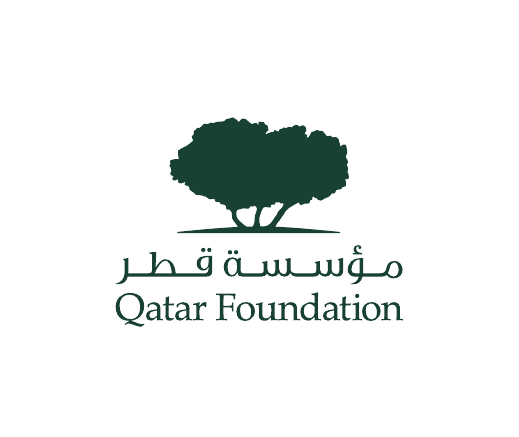Panel A Vision and Key Technologies for 5G Networks
CHAIR: Dr. Maziar Nekovee, Samsung, UK
Dr. Maziar Nekovee is a chief engineer at Samsung Electronics R&D Institute UK (SRUK) where he leads Samsung’s European research and collaborations in next-generation mobile communications standards (5G), including the EU’s Horizon 2020 5G PPP and UK’s 5GIC initiative. He also represents, on behalf of Samsung, the terminal and device sectors in the EU’s 5G Infrastructure Association. Prior to joining Samsung he was with BT (British Telecom) where he pioneered and led research in cognitive radio, white space and dynamic spectrum sharing technologies as well as providing technical consultancy on 4G spectrum auction and mobile strategy to business units. In additions to his experience in mobile and telecom industry he has 15 years of experience in leading and conducting research in top UK universities, including Imperial College and University College London, and collaboration with top universities in Europe, the U.S., Korea and China. Maziar has a Ph.D. in theoretical physics and a first degree and M.Sc. in electrical engineering (cum laude), both obtained in The Netherlands. He has published over 90 peer-reviewed papers and one book (on cognitive radio), and has several patents. His current research focuses on research for future standardisation of disruptive technologies for 5G radio access networks, including mmWave communications and spectrum sharing technologies.
PANELISTS

Dr. Adnan Abu-Dayya, Qatar Mobility Innovation Center, Qatar
Dr. Abu-Dayya is the executive director (CEO) of the Qatar Mobility Innovation Center (QMIC). Abu-Dayya has more than 20 years of International experience in the areas of wireless/telecomm R&D, innovations, business development and services delivery. Before moving to Qatar in March 2007, he worked for 10 years at AT&T Wireless in Seattle, USA, where he served in a number of senior management positions covering product innovations and emerging technologies, systems engineering, and product realization. He was also responsible for developing and licensing the extensive patent portfolio of AT&T Wireless. Before that, he worked as a manager at Nortel Networks in Canada in the advanced technology group and as a senior consultant at the Communications Research Centre in Ottawa, Canada. From April 2007 to December 2008, he was the chairman of the Electrical Engineering Department at Qatar University. He led the initiative to create and then was appointed as the executive director of QMIC in December 2008 at the Qatar Science and Technology Park. He received his Ph.D. in electrical engineering from Queens University, Canada, in 1992. He has many issued patents and more 50 fifty publications in the field of wireless communications.

Prof. Hussein M. Alnuweiri, Texas A&M university at Qatar, Doha
Dr. Hussein M. Alnuweiri joined the Electrical and Computer Engineering Program at Texas A&M at Qatar in August 2007, where he is teaching courses and conducting research in computer engineering, computer networking, system design and real-time multimedia communications. Prior to joining Texas A&M at Qatar, Alnuweiri held the position of professor in the Department of Electrical and Computer Engineering at the University of British Columbia, Canada. He has a long record of industrial collaborations with several major companies in the North America, including Alcatel, Nortel, PMC-Sierra and Qualcomm. He has been author or co-author of more than 150 refereed journal and conference papers in various areas of computer and communications research. Alnuweiri is also an inventor, and holds three U.S. patents and one International patent.

Dr. Octavia A. Dobre, Memorial University, Canada
Octavia A. Dobre is an Associate Professor with Memorial University, Canada. Her research interests include cognitive radio systems, spectrum sensing techniques, blind signal identification techniques, transceiver optimization algorithms, dynamic spectrum access, resource allocation, signal processing for 5G, and optical communications. She published over 130 referred journal and conference papers in these areas. Her research has been supported by various funding agencies, governmental laboratories, and industry, such as NSERC, DRDC, CRC, RDC NL, and Altera Corporation. She was the recipient of a Royal Society scholarship and a Fulbright fellowship, and was a Visiting Professor with Massachusetts Institute of Technology. Dr. Dobre is a senior editor for IEEE Communications Letters, and serves as an editor and guest editor for several other prestigious journals, as well as the conference chair and technical co-chair of various conferences.
Dr. Jonas Kronander, Ericsson, Sweden
Dr. Jonas Kronander received the M.Sc. in engineering physics in 2002 and the Ph.D. in theoretical physics (string theory) in 2007, both from Uppsala University, Sweden. In 2000 he was awarded the title Ancien pensionnaire de l'École normale supérieure. In 2007 he joined Ericsson Research in Kista, Sweden, where he currently holds a senior researcher position. He has been involved in several EU-funded projects and in the EU FP7 QUASAR project (2010-2012) he led a work package focusing on developing novel spectrum-sharing techniques. His research interests include wireless communications, medium-access optimization and opportunistic and dynamic spectrum access.
Panel B: Unlocking spectrum above 6 GHz for 5G: Technologies and Uses
CHAIR: Dr. Maziar Nekovee, Samsung, UK
Dr. Maziar Nekovee is a chief engineer at Samsung Electronics R&D Institute UK (SRUK) where he leads Samsung’s European research and collaborations in next-generation mobile communications standards (5G), including the EU’s Horizon 2020 5G PPP and UK’s 5GIC initiative. He also represents, on behalf of Samsung, the terminal and device sectors in the EU’s 5G Infrastructure Association. Prior to joining Samsung he was with BT (British Telecom) where he pioneered and led research in cognitive radio, white space and dynamic spectrum sharing technologies as well as providing technical consultancy on 4G spectrum auction and mobile strategy to business units. In additions to his experience in mobile and telecom industry he has 15 years of experience in leading and conducting research in top UK universities, including Imperial College and University College London, and collaboration with top universities in Europe, the U.S., Korea and China. Maziar has a Ph.D. in theoretical physics and a first degree and M.Sc. in electrical engineering (cum laude), both obtained in The Netherlands. He has published more than 90 peer-reviewed papers and one book (on cognitive radio), and has several patents. His current research focuses on research for future standardisation of disruptive technologies for 5G radio access networks, including mmWave communications and spectrum sharing technologies.
PANELISTS:

Dr. Valerio Frascolla, Intel, Germany
Intel, Germany Dr. Valerio Frascolla obtained the M.Sc. and the Ph.D. in electrical engineering from Ancona University, Italy, where he worked as research fellow until 2006, when he moved to Germany to join Comneon as concept engineer, focusing on SW architectures for mobile phones and attending 3GPP CT1 and CT Plenary standardization bodies. In 2010 he joined Infineon Technologies as funding and research project manager, focusing on design and requirement management of wireless platforms. Since 2011 he is the European person responsible for funding activities and innovation manager at Intel Mobile Communications based in Munich. Frascolla is an experienced project and program manager, obtained the CSM and CSPO certifications in 2013, has been contributing in different roles to several European and national funded projects (MEDEA, TOOLIP, EASY-C, HIGAPS II, CoolReader, PowerEval, Intellispektrum, ADEL, MiWaveS) and acts as facilitator of innovation using agile methodologies. He has a track record of technical excellence, is author of peer-review papers, invited speaker and panellist to several venues and is serving as member of numerous technical program committees. His research interests are in Hw/Sw co-design, wireless communications and low-power system design.

Dr. Laurent Dussopt, CEA-LETI, France
Dr. Laurent Dussopt received the M.S. and Agrégation degrees in electrical engineering from the Ecole Normale Supérieure de Cachan, France, and the Ph.D. degree in electrical engineering from the University of Nice-Sophia Antipolis, France. From September 2000 to October 2002, he was a research fellow with the University of Michigan, USA, where he developed reconfigurable microwave circuits and antennas based on RF-MEMS technology. Since 2003, he has been with CEA-LETI, France, as a research engineer and project leader on radio and antenna systems. He was appointed as chief scientist of the Systems and Integration Solutions Division of CEA-LETI in 2013. Since 2014, he coordinates the EU project, “MiWaveS on Millimeter-wave Communications for Access and Backhaul in Future Wireless Heterogeneous Networks.” Dussopt has published more than 100 scientific papers in international journals and conferences and several book chapters. He is a senior member of IEEE and a research director of CEA. His research interests include mainly advanced antenna systems for wireless communications at microwave and millimeter-wave frequencies.
Dr. Jonas Kronander, Ericsson, Sweden
Dr. Jonas Kronander received the M.Sc. degree in engineering physics in 2002 and the Ph.D. degree in theoretical physics (string theory) in 2007, both from Uppsala University, Sweden. In 2000 he was awarded the title Ancien pensionnaire de l'École normale supérieure. In 2007 he joined Ericsson Research, Kista, Sweden, where he currently holds a senior researcher position. He has been involved in several EU funded projects and in the EU FP7 QUASAR project (2010-2012) he led a work package focusing on developing novel spectrum sharing techniques. His research interests include wireless communications, medium access optimization and opportunistic and dynamic spectrum access.

Dr. Egon Schultz, Huawei, Germany
Dr. Egon Schulz received his PhD from the Institute of Electrical Engineering, Technical University of Darmstadt, Germany, in 1988. From 1982 to 1988, he was employed as a research assistant for communication systems. In 1988 he joined the Mobile Network Division at Siemens AG, Munich. From 1992 to 1993 he was a professor of telecommunication at University of Applied Sciences of Darmstadt, Germany. In 1993 was a director for System Engineering for radio in the local and for wireless private branch exchange systems based on DECT and WB-CDMA. From 1998 he was involved in the UMTS standardisation. Since 2000 he has been serving as director for future radio concepts. He was involved in numerous national BMBF and EU research projects for the designing of future mobile communication networks. He was the project leader of the Sino-German Project Joint Research B3G (JRB3G) between German and Chinese Research Institutes funded by Siemens AG. Dr. Schulz participated in the 863 (MOST) funded research projects FuTURE and FuTURE+. In 2005, he was elected as vice chairman of the FuTURE Forum in China. He had a strong engagement in research and prototyping for Long-Term Evolution (LTE) and LTE-advanced (LTE-A). In July 2009 he joined the European Research Center in Munich as Director of the Wireless Innovation Center at Huawei Technologies. His Research interest is Future Mobile communication 5G.








.jpg)

































